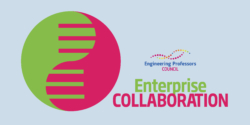 Theme: Collaborating with industry for teaching and learning
Theme: Collaborating with industry for teaching and learning
Authors: Prof Lucy Rogers (RAEng Visiting Professor at Brunel University, London and freelance engineering consultant) and Petra Gratton (Associate Dean of Professional Development and Graduate Outcomes in the College of Engineering, Design and Physical Science at Brunel University London, and Lecturer in the Department of Mechanical and Aerospace Engineering)
Keywords: Industry, Interview, Video, Real Life, Engineers
Abstract: A number of short videos that can be re-used in teaching undergraduate modules in Engineering Business, instead of inviting guest presentations. The interview technique got each individual to talk about their life experiences and topics in engineering business that are often considered mundane (or challenging) for engineers, such as ethics, risks and regulation, project management, innovation, intellectual property, life-cycle assessment, finance and creativity. They also drew attention to their professional development.
Project outcomes
The outcomes of this project are a number of short videos that were used, and can be re-used, in teaching delivery of an undergraduate module in Engineering Business in the Department of Mechanical and Aerospace Engineering at Brunel University London instead of having guest presentations from invited speakers. Lucy’s interview technique got the individuals featured in each film to talk about their life experiences and topics in engineering business that are often considered mundane (or challenging) for engineers, such as ethics, risks and regulation, project management, innovation, intellectual property, life-cycle assessment and finance; and drew attention to their professional development.
The shorter videos were inspirational for students to make videos of themselves as part of the assessment of the module, which required them to carry out a personal professional reflection exercise and report upon what they had learned from the exercise in a simple 90-second video using their smartphone or laptop.
Having used the videos with Brunel students, Lucy has made them available on her YouTube channel: Dr Lucy Rogers – YouTube. Each of the videos are listed in the following table:
| Topic | Who | Video Link |
|---|---|---|
| Creativity in Engineering: Your CV | Reid Derby | https://youtu.be/qQILO4uXJ24 |
| Creativity in Engineering: Your CV | Leigh-Ann Russell | https://youtu.be/LJLG2SH0CwM |
| Creativity in Engineering: Your CV | Richard Hopkins | https://youtu.be/tLQ7lZ3nlvg |
| Corporate Social Responsibility | Alexandra Knight (Amey Strategic Consulting) |
https://youtu.be/N7ojL6id_BI |
| Ethics and Diversity | Alexandra Knight (Amey Strategic Consulting) |
https://youtu.be/Q4MhkLQqWuI |
| Project Management and Engineers | Fiona Neads (Rolls Royce) | https://youtu.be/-TZlwk6HuUI |
| Project Management – Life Cycle | Paul Kahn (Aerospace and Defence Industry) |
https://youtu.be/1Z4ZXMLRPt4 |
| Ethics at Work | Emily Harford (UKAEA) | https://youtu.be/gmBq9FIX6ek |
| Communication Skills at Work | Emily Harford (UKAEA) | https://youtu.be/kmgAlyz7OhI |
| Client Brief | Andy Stanford-Clark (IBM) | https://youtu.be/WNYhDA317wE |
| Intellectual Property from Artist’s Point of View | Dave Corney (Artist and Designer) |
https://youtu.be/t4pLkletXIs |
| Intellectual Property | Andy Stanford-Clark (IBM) | https://youtu.be/L5bO0IdxKyI |
| Project Management | Fiona Neads – Rolls Royce | https://youtu.be/XzgS5SJhiA0 |
Lessons learned and reflections
We learned that students generally engaged with the videos that were used. Depending which virtual learning environment (VLE) was being used, using pre-recorded videos in synchronous online lectures presents various challenges. To avoid any unplanned glitches, in future we know to use the pre-recorded videos as part of the teaching-delivery preparation (e.g. in a flipped classroom mode).
As part of her legacy, Lucy is going to prepare a set of simple instructions on producing video interviews that can be carried out by both staff and students in future.
Any views, thoughts, and opinions expressed herein are solely that of the author(s) and do not necessarily reflect the views, opinions, policies, or position of the Engineering Professors’ Council or the Toolkit sponsors and supporters.
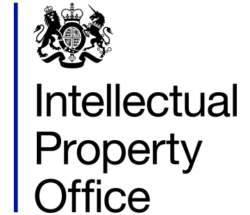 Innovation is at the heart of everything engineers do. This innovation has value, which may be protected by intellectual property rights. Appropriate use of intellectual property rights can ensure that your innovation has the opportunity to succeed. Whether it is a new method which solves an existing problem or a new tool which opens up new possibilities.
Innovation is at the heart of everything engineers do. This innovation has value, which may be protected by intellectual property rights. Appropriate use of intellectual property rights can ensure that your innovation has the opportunity to succeed. Whether it is a new method which solves an existing problem or a new tool which opens up new possibilities.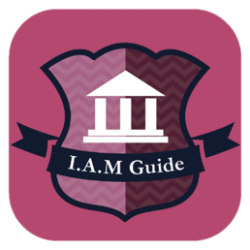 The IPO has provided us with a guide to patents, trade marks, copyright or design: how intellectual property applies to the work of engineering academics.
The IPO has provided us with a guide to patents, trade marks, copyright or design: how intellectual property applies to the work of engineering academics.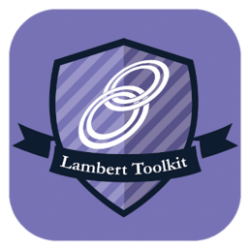 The IPO has provided us with a guide to patents, trade marks, copyright or design: how intellectual property applies to the work of engineering academics.
The IPO has provided us with a guide to patents, trade marks, copyright or design: how intellectual property applies to the work of engineering academics.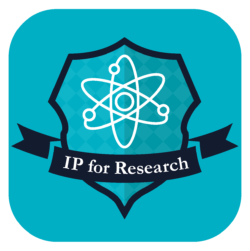 The IPO has provided us with a guide to patents, trade marks, copyright or design: how intellectual property applies to the work of engineering academics.
The IPO has provided us with a guide to patents, trade marks, copyright or design: how intellectual property applies to the work of engineering academics.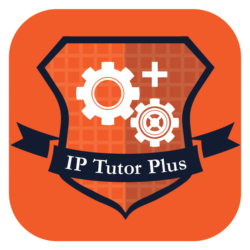 The IPO has provided us with a guide to patents, trade marks, copyright or design: how intellectual property applies to the work of engineering academics.
The IPO has provided us with a guide to patents, trade marks, copyright or design: how intellectual property applies to the work of engineering academics.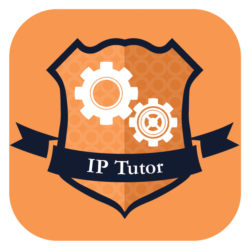 The IPO has provided us with a guide to patents, trade marks, copyright or design: how intellectual property applies to the work of engineering academics.
The IPO has provided us with a guide to patents, trade marks, copyright or design: how intellectual property applies to the work of engineering academics.